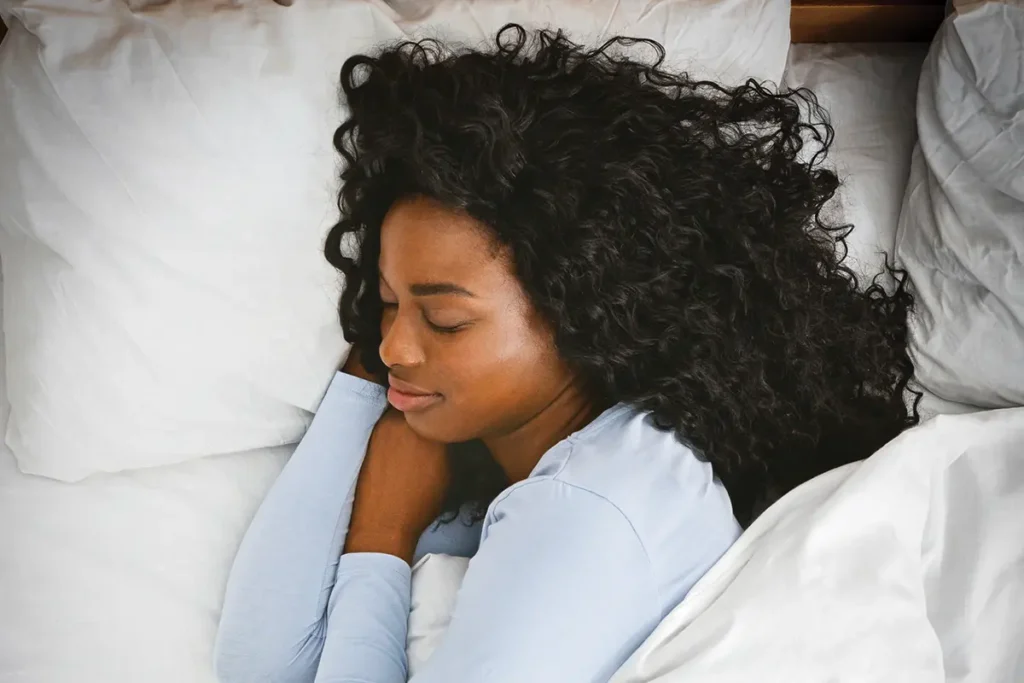Today’s Dietitian
Vol. 26 No. 3 P. 6
Q: My clients have been asking me about taking magnesium supplements to improve the quality of their sleep. Is there any scientific evidence supporting this claim?
A: According to the International Food Information Council’s 2023 Food and Health Survey, 27% of the United States population is seeking better sleep by using food, beverages, or supplements.1 In addition, TikTok videos, often viewed by millions of people, claim that magnesium supplements help overcome sleepless nights in one or more nights.2 With the influence of social media and increased issues surrounding sleep, consumers are turning to magnesium supplements for help. This article will explore what the science says about magnesium’s role in sleep and if and when supplements are warranted.
What Is Magnesium?
Magnesium is a mineral in the body that’s naturally present in many foods, added to food products, and available as a dietary supplement. This mineral is a cofactor to more than 300 enzyme systems that regulate biochemical reactions, including protein synthesis, muscle and nerve function, blood glucose control, and blood pressure regulation.3 Magnesium plays a plethora of roles in the body, such as contributing to the structural development of bones, as well as in the synthesis of DNA, RNA, and antioxidant glutathione.
The recommended intake for magnesium for ages 19 to 30 is 400 mg/day for men, 310 mg/day for women, 350 mg/day during pregnancy, and 310 mg/day for lactating women. For ages 31 and older, magnesium recommendations are 420 mg/day for men, 320 mg/day for women, 360 mg/day during pregnancy, and 320 mg/day for lactating women.3 Data analysis from the National Health and Nutrition Examination Survey of 2013–2016 found that 48% of Americans fall short on magnesium intake.4
Food sources of magnesium include green leafy vegetables, legumes, nuts, seeds, whole grains, and fortified breakfast cereals. In addition, magnesium supplements are available in several forms, including magnesium oxide, citrate, and chloride.
Magnesium’s Role
According to Karman Meyer, RD, a professional speaker and author of Eat to Sleep: What to Eat & When to Eat It for a Good Night’s Sleep, magnesium is a “key player in promoting muscle relaxation, decreasing inflammation, and reducing stress in the body.” Meyer explains that magnesium can help relax the nervous system and promote muscular relaxation, and therefore may be beneficial for helping people initially fall asleep and stay asleep. While Meyer acknowledges that the connection between magnesium and sleep is still being studied, she explains that what’s known is that the “effects magnesium has on the nervous system plays an important role in sleep health.”
A 2023 systematic review looked at 7,582 subjects from nine published cross-sectional, cohort, and randomized controlled trial (RCT) studies to determine the possible links between magnesium and sleep quality (daytime falling asleep, sleepiness, snoring, and sleep duration) in adults.5 The observational studies suggest an association between magnesium status and sleep quality, while the RCTs found contradictory findings. Furthermore, the RCTs showed an uncertain association between magnesium supplementation and sleep disorders. The researchers concluded that these types of mixed results warrant well-designed RCTs with larger sample sizes and additional follow-up times over 12 weeks to help clarify this relationship.
With at least 50% of Americans3 not getting enough magnesium through daily food sources in addition to consuming the standard American diet that’s typically high in refined grains, sugar, and high-fat processed food, and low in leafy green vegetables, legumes, and nuts and seeds, Meyer says that a supplement may be warranted if food choices don’t change.
Magnesium supplementation in contraindicated in individuals with kidney disease and those intending to combine a laxative with magnesium supplements, which may cause gastrointestinal issues. And since there are various forms of magnesium supplements, some of which may have a laxative effect, clients should speak with their physician or RD regarding the best form that fits their individual needs.
Recommendations for RDs
The first step a dietitian should take when considering clients and magnesium supplementation is to “determine whether or not they’re deficient first,” Meyer says. “If an individual has adequate magnesium levels, a supplement will not provide any additional benefits.” For those who are deficient in magnesium, recommending foods higher in magnesium should be the first place to start. This includes more legumes, leafy green vegetables, avocados, nuts, seeds, and whole grains. If clients are unable to meet their daily recommendations through food alone, then a supplement may be warranted.
It also should be noted that TikTok and other social media videos claim magnesium helps with sleep, but these videos often include individuals who self-report taking the magnesium supplement for a very short time (ie, one day) until they experienced better sleep. However, this isn’t a realistic depiction of supplementation. Educating clients on the timeframe it usually takes to replenish stores in someone who’s deficient in magnesium also is important to better gauge progress.
— Toby Amidor, MS, RD, CDN, FAND, is founder of Toby Amidor Nutrition (tobyamidornutrition.com) and a Wall Street Journal bestselling author. She’s written 10 cookbooks, including Up Your Veggies: Flexitarian Recipes for the Entire Family and The Family Immunity Cookbook: 101 Easy Recipes to Boost Health. She’s also a nutrition expert for FoodNetwork.com and a contributor to U.S. News and other national outlets.
References
1. International Food Information Council. 2023 Food and Health Survey. Page 48. https://foodinsight.org/wp-content/uploads/2023/05/IFIC-2023-Food-Health-Report.pdf. Published May 23, 2023.
2. Akhtar A. TikTok creators think magnesium is a ‘magic pill’ for anxiety and sleepless nights, experts weigh in. Business Insider India website. https://www.businessinsider.in/science/health/news/tiktok-creators-think-magnesium-is-a-magic-pill-for-anxiety-and-sleepless-nights-experts-weigh-in/articleshow/98911258.cms. Published March 22, 2023.
3. Magnesium: fact sheet for health professionals. National Institutes of Health Office of Dietary Supplements website. https://pubmed.ncbi.nlm.nih.gov/35184264/. Updated June 2, 2022.
4. US Department of Agriculture, Agricultural Research Service. Usual nutrient intake from food and beverages, by gender and age. https://www.ars.usda.gov/ARSUserFiles/80400530/pdf/usual/Usual_Intake_gender_WWEIA_2013_2016.pdf. Published May 2019.
5. Arab A, Rafie N, Amani R, Shirani F. The role of magnesium in sleep health: a systematic review of available literature. Biol Trace Elem Res. 2023;201(1):121-128.



